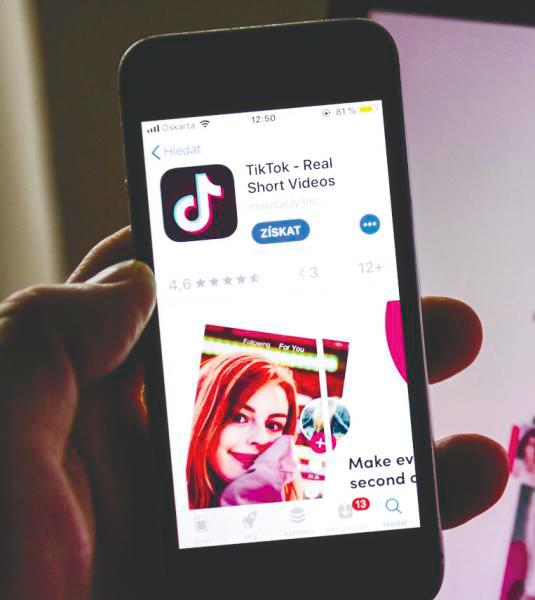TIKTOK, the popular platform for the sharing of videos – which is owned by the Chinese company ByteDance – has the potential to revolutionise the way in which the music industry operates.
It can be seen that most of the songs on Spotify’s Top 50 and Billboard 100 charts are often influenced by TikTok’s popularity. Therefore, even decades-old and non-mainstream songs could emerge naturally on the app.
According to a November 2021 survey done for TikTok by the music analytics company MRC Data, “67% of the app’s users are more likely to seek out songs on music-streaming platforms after encountering them on TikTok.”
It’s no secret that some labels are using TikTok as a way to promote both their most recent releases and their entire back catalogue, as it has been shown that the app has proven to be a vital promotional tool for both musicians and record labels alike.
Marketers engage with influencers on the app to help a song acquire popularity, resulting in an avalanche of user-generated content from their followers.
Some musicians even schedule exclusive TikTok listening sessions to obtain attention for their new tracks.
The beginning of the new hits era
Early in 2019, American rapper and vocalist Montero Lamar Hill, commonly known by his stage name Lil Nas X, hit the lottery when his song Old Town Road was named the most successful song of all time, and became the first song ever to go 15 times platinum.
This success is largely down to the song’s early adoption as a TikTok “meme” by millions of users. Old Town Road has become the origin story for an extraordinary string of viral musical successes on TikTok.
Artistes’ have skyrocketed due to millions of TikTok users using their songs in their videos.

Power of virality
CKay’s Love, Nwantiti was released in 2019, but it didn’t become a hit until 2021. Since then, it has been featured in more than seven million TikTok videos. This makes it the most popular and successful pop song to ever come out of Africa.
With entirely new audiences, classic songs are making remarkable comebacks. One TikTok user, Nathan Apodaca, went viral after posting a video of himself gliding down a highway on a longboard while drinking cranberry juice, lip-syncing to the 1977 Fleetwood Mac song Dreams.
Following the event, Dreams re-entered the Billboard Hot 100 after being used by millions of TikTok users for more than four decades.
How can such things happen?
Videos made on TikTok are very brief, even if the maximum duration of a video is 60 seconds, so music plays a crucial role.
Many of the videos show people dancing or lip-syncing, but there are also videos of people giving speeches, reviewing businesses, or even giving advice.
When those users create videos, they typically select a song, cut it, and use only the most memorable portions of a song, such as a chorus or when the beat drops.
The second aspect fueling virality may be so-called challenges, in which millions of users construct visual narratives or dance moves to a single music clip and encourage other users to follow the trends.
TikTok videos don’t directly contribute to the chart’s success, but a song’s success on the app might affect its popularity on other music streaming services, such as Spotify, Joox, and Apple Music, and on the Billboard charts.
The future of the music industry
The success of TikTok marks a substantial shift from the industry’s view of recorded music as something to be listened to passively. Music on TikTok is a medium for creativity and artistic expression.
TikTok helps listeners discover new music styles due to the brief videos. Its self-learning algorithm is also the main reason that it exposes viewers to a lot of new music rapidly. With only one tap, users can see more videos in the same genre of music.
Importantly, what we’re seeing now is very likely just the beginning in terms of new kinds of ways to express oneself creatively and new ways to promote music.
In the meantime, it’s not clear whether this will restrict originality or if artistes will feel forced to produce “TikTokable” content for TikTok’s virality.









